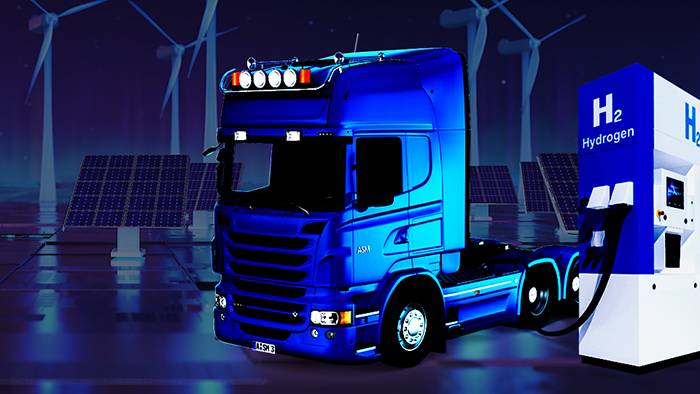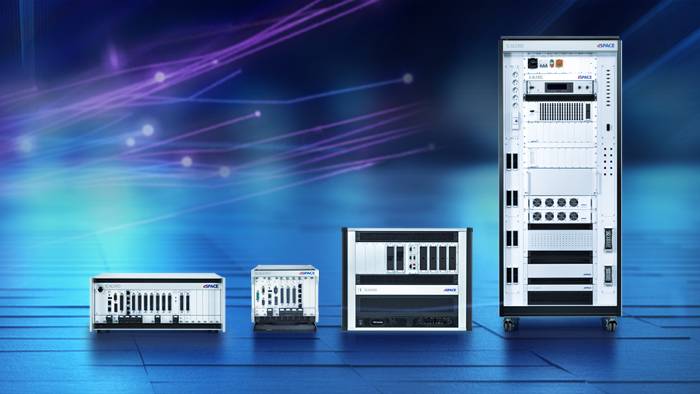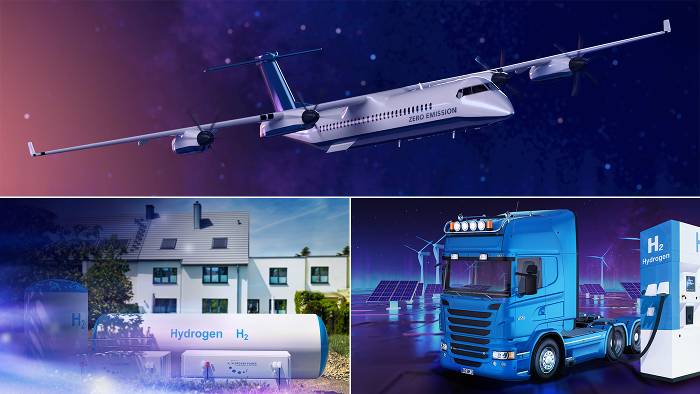How will trucks, buses, and heavy equipment be powered in the future? For Hyzon Motors Inc., the answer is clear: with hydrogen fuel cells. To this end, the company is not only developing numerous key technologies, but is also actively involved in promoting a supply infrastructure for clean hydrogen. Hyzon relies on dSPACE technology for ECU validation.
The fuel cell provides electrical energy without releasing CO2 or pollutants and is therefore increasingly attracting the attention of the energy and automotive industries as a climate-friendly energy supplier. In view of special range requirements and efficiency criteria, it is an interesting option in the mobility sector, especially for commercial vehicles. It converts chemical energy released in a reaction between hydrogen and oxygen into electrical energy. Because hydrogen only occurs in nature in compounds, for example, together with oxygen in water, it must first be isolated, often by means of electrolysis. The technology is only truly climate-neutral if the electricity used for this electrolysis has been generated without emissions.
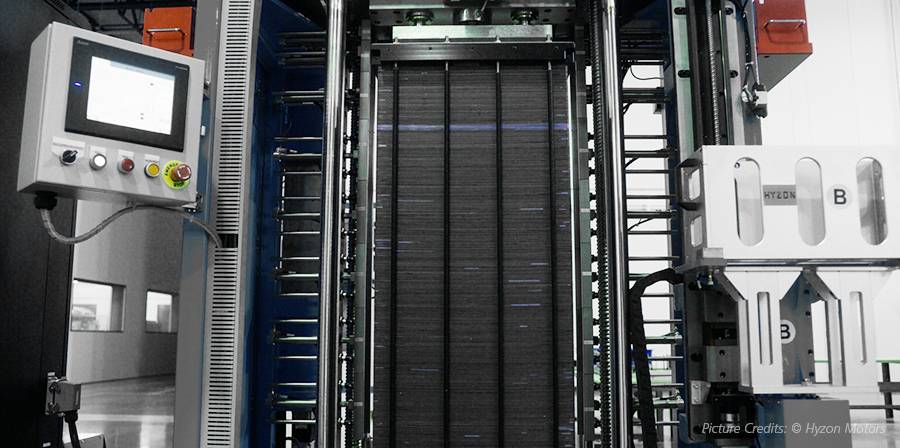
Clean, Affordable, Available Everywhere
U.S.-based Hyzon Motors Inc., headquartered in Rochester, New York, is committed to this goal and is active in the creation of a flexible and robust supply infrastructure for clean hydrogen. The vision: affordable hydrogen that is available everywhere and produced exclusively using renewable resources such as biogas or methane, sun, wind, or waste. Together with various partners, the company is focusing on the local production of hydrogen in order to minimize costly transportation.
In its core business, Hyzon develops and produces emission-free proton-exchange membrane (PEM) fuel cell systems and integrates them in commercial vehicles such as trucks. The company is one of the world’s first OEMs of hydrogen fuel cell powertrain technology utilized in powering heavy-duty commercial vehicles.
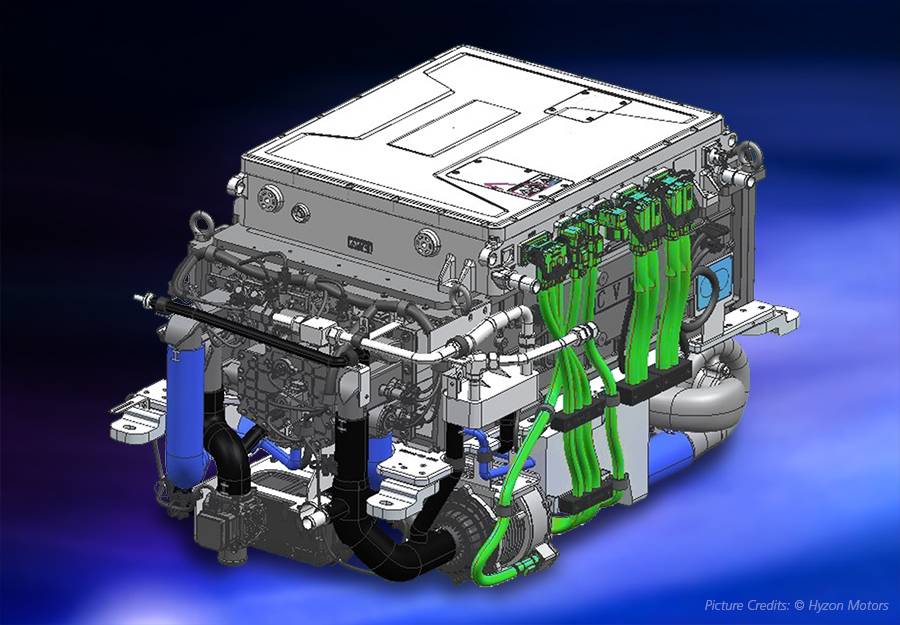
No Fuel Cell System Without FCU
The brain of every fuel cell system is the fuel cell control unit (FCU). Using a range of control algorithms, it controls the entire system with its various components such as hydrogen injection, valves, pumps, and compressors. “To make the development of the required FCU software as efficient as possible, we wanted to be able to test and optimize it again and again at very early stages – even well before a real fuel cell system is available,” reports Daniel Kang who, as Software Test Manager, is jointly responsible for the development of the controller software at Hyzon Motors.
Hyzon therefore needed a system that could be used to test all the functions of an FCU that are relevant to the operation of a fuel cell system and that includes a fuel cell model for simulating the FCU environment. The test solution they were looking for also needed to help the development team with other tasks, such as creating a catalog of automated regression tests that are run on each new software release.
Scalable Test Solution for FCU Software
Hyzon set out to find a provider that could deliver both a suitable platform for hardware-in-the-loop (HIL) testing and a real-time-capable plant model for fuel cell systems. “dSPACE was one of the few vendors that could offer both of these products in one integrated solution,” says Daniel Kang. Hyzon chose a flexibly scalable HIL test solution from dSPACE with powerful real-time simulation hardware that has all the relevant interfaces for connecting the FCU. On the software side, the solution is completed by the dSPACE ASM Fuel Cell model library, which contains not only the model of the fuel cell system but also models for the powertrain, electric motors, battery, and driving resistance. The solution enables real-time simulation of the fuel cell systems and the creation of a realistic test environment for the FCU. With this combination of HIL system and suitable plant model, the developers were soon able to efficiently test the FCU software and perform initial calibrations without even having to put it on a real system.
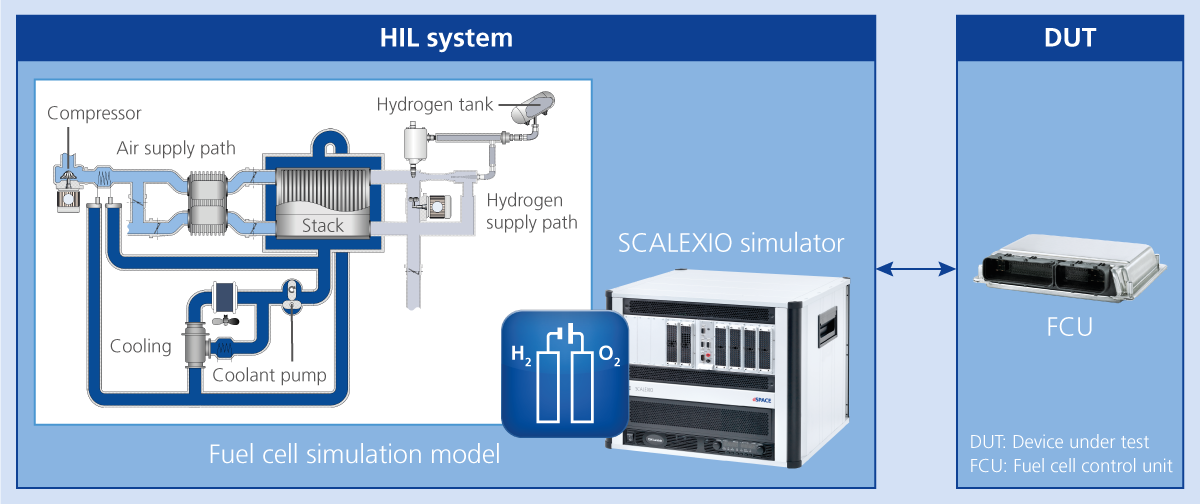
Hyzon uses an integrated solution from dSPACE to efficiently test FCUs without having to put them on a real system. The test solution combines powerful real-time simulation hardware with a real-time-capable plant model for fuel cell systems.
Integration of HIL Tests in FCU Development
Today, Hyzon carries out HIL tests with every new FCU software version, for example, to test software functions specifically at component level. The development team also tests new control strategies in the dSPACE HIL system first to make sure they work as expected, or to fix potential problems early on. The possibility of early software calibration has proven to be particularly efficient: When it comes to performance testing in the real system later on, the FCU software is already much more mature than was the case in earlier tests. Meanwhile, the developers also use the dSPACE HIL system to recreate and fix problems that occurred in the real fuel cell system.
From I/O to Closed Loop
The HIL tests Hyzon performs with the dSPACE solution range from basic I/O tests, where all inputs and outputs of the FCU (digital, analog, and CAN) are checked for correct operation, to closed-loop tests of the control loops. As part of the closed-loop tests, the development team checks, for example, whether it is ensured that all setpoints match their actual values after a predefined settling time and thus that all closed control loops are stable. The ASM Fuel Cell simulation model makes it possible to examine the following variables, among others, in detail:
- Anode outlet pressure
- Cathode air flow
- Compressor speed and outlet pressure
- Stack coolant inlet and outlet temperature
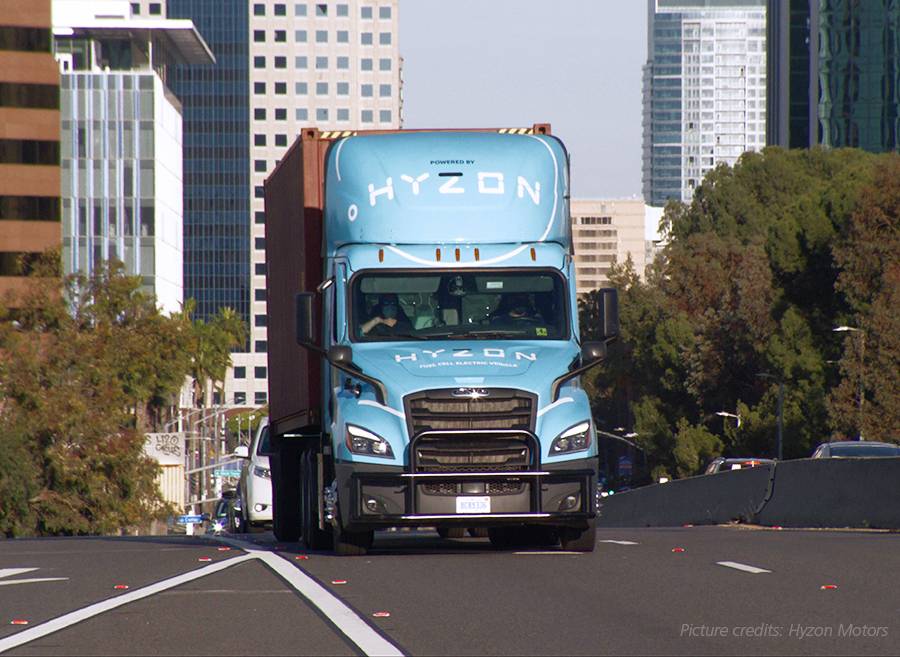
First Successes with the dSPACE Solution
“Thanks to the numerous preliminary tests that the development team was able to perform with the HIL system, the first software release for the FCU was functional very quickly – before it was even set up on a real system,” Daniel Kang is pleased to report. When the developers were able to deploy the software on a real system, they were able to successfully get it up and running in a relatively short time. They attributed this success to their extensive testing with the HIL system.
The HIL system also proves to be a gamechanger when it comes to reproducing potentially critical test scenarios: Operating ranges with cell currents, temperatures, and pressures outside the normal operating range can now be easily included in the tests – without having to fear damage to the real fuel cell system. Being able to rapidly update and expand the functions of the fuel cell system with only a few clicks also enables the development team to test new control software quickly and flexibly on different systems and system versions.
Conclusion and Outlook
When asked about his experience with the dSPACE test solution, Daniel Kang gives very positive feedback: “I have experience with other HIL systems and in my opinion, dSPACE provides some of the best HIL hardware and software in the market. The high scalability of the test systems is outstanding: They are designed in such a way that they can be easily adapted to new configurations. Overall, I'm very happy with the HIL system and how it has helped us improve our software testing capabilities.”
Currently, Hyzon is already successfully using the HIL systems to develop the next-generation FCU. In addition, Hyzon is continuously working on technological advances across all key components of fuel cells. So we can expect some exciting innovations and product commercialization in the hydrogen sector in the future.
Courtesy of Hyzon Motors Inc.
dSPACE MAGAZINE, PUBLISHED JULY 2023



